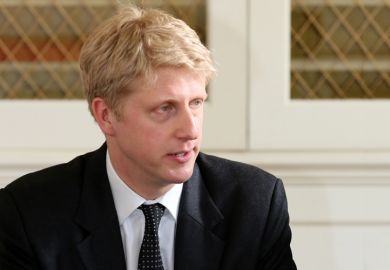Creating subject-level ratings for the UK’s teaching excellence framework may harm strategically important subjects and offer misleading information to prospective students, sector leaders have warned.
With the government now calling on universities to take part in a one-year pilot of a discipline-level version of the TEF, concerns have been raised over the proposal to divide the UK sector into 35 subject groups.
According to the specification of the subject-level TEF pilot published by the Department for Education on 20 July, there are about 4,500 subjects taught at UK universities, reflecting the huge diversity of courses on offer to students.
However, Stephanie Haywood, vice-chair of the Engineering Professors’ Council, said that the proposed bundling of subjects would ignore the huge number of different strands of engineering found in any one faculty, which often had little to do with each other.
“I think that there are issues with considering engineering as a single subject when, in reality, different engineering departments in one institution may operate quite independently from each other,” said Professor Haywood, emeritus professor at the University of Hull’s School of Engineering and Computer Science. “It may not give a clear and accurate picture to students to group all departments together in this way.
“It could also discourage new engineering specialisms [or] departments starting up as this may impact TEF scores in the short term.”
The pilot also unveiled plans for a trial of a new “teaching intensity” metric in five subjects in which a “gross teaching quotient” score would measure contact hours with students, which would be weighted to reflect class sizes.
Producing metrics to reflect class sizes would tackle universities’ repeated failure to offer any meaningful information to applicants on this score, said Mike Peacey, lecturer in economics at the New College of the Humanities, whose forthcoming research paper with University of Bristol economist Gervas Huxley on this issue was cited by the DfE consultation.
However, Pam Tatlow, chief executive of MillionPlus, which represents modern universities, described the proposed “teaching intensity” metrics as both “hideously complicated” and “likely to give the wrong impression about the different ways of teaching and the contexts in which students learn”.
“Contact hours, or how many people you study with, are not in themselves a good measure of how much people learn,” she added.
Concerns have also been raised around the new bureaucracy created by a subject-level TEF, which would require a five-page submission for each subject under one proposed model, although overall TEF submissions would be limited to 73 pages per institution.
Register to continue
Why register?
- Registration is free and only takes a moment
- Once registered, you can read 3 articles a month
- Sign up for our newsletter
Subscribe
Or subscribe for unlimited access to:
- Unlimited access to news, views, insights & reviews
- Digital editions
- Digital access to THE’s university and college rankings analysis
Already registered or a current subscriber?







